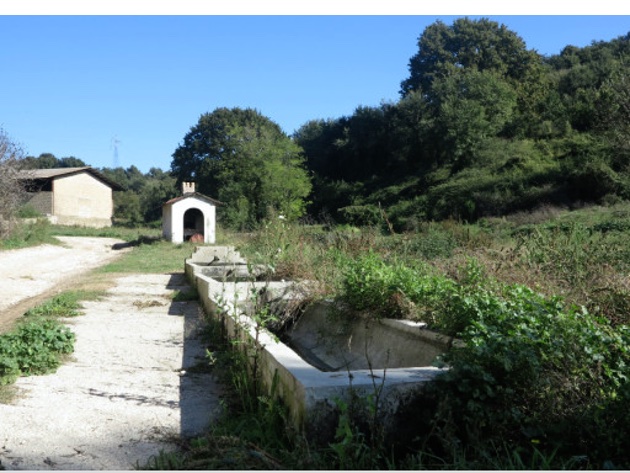
La Reserva Natural de la Marcigliana se encuentra al noreste de Roma, en la zona comprendida entre la via Salaria y la via Nomentana, en la margen izquierda del Tíber. Esta zona era llamada "Latium Vetus" por los antiguos romanos debido a la presencia de varias ciudades habitadas por pueblos latinos. Dentro del parque se encuentran los restos de Crustumerium, un asentamiento que data de la Edad del Bronce y principios de la Edad del Hierro (siglos X-IX a. C.).
Entre finales de la época republicana y principios de la imperial, surgieron en esta zona grandes villas rústicas dedicadas a la producción de grano, vino y aceite, además de la cría de ganado. En la Edad Media, se construyeron numerosas casas de campo, a menudo fortificadas, sobre las ruinas de villas romanas; entre ellas, destacan el Casale della Marcigliana y el Casale della Cesarina.
El parque se caracteriza por la presencia de torres medievales que servían tanto como residencia como torres de vigilancia. Las más importantes son la Torre San Giovanni, construida sobre las ruinas de una villa romana, y la Torre della Marcigliana, primero incorporada a una casa de campo y posteriormente al castillo homónimo de los siglos XVI-XVII, junto con otras torres defensivas. El parque también cuenta con numerosas fuentes, que antiguamente se utilizaban para abrevar al ganado.
Con una extensión de más de 4.000 hectáreas, la reserva comprende parte del Agro Romano, un paisaje de colinas bajas cultivadas o utilizadas para pastoreo, mientras que los valles están cubiertos de matorral, restos de un vasto bosque de robles, quejigos, robles comunes, robles pubescentes, arces, olmos y helechos.
La fauna también es muy rica y variada: numerosos mamíferos como zorros, martas, comadrejas, tejones, puercoespines y liebres italianas. Entre las aves, destacan rapaces diurnas y nocturnas como el cernícalo vulgar, el busardo ratonero, la lechuza común, el cárabo común y el mochuelo común; otras especies presentes son el pico picapinos, el pito real, la terrera común, la golondrina común, la abubilla y el abejaruco europeo.
En la década de 1990, se inauguró el sendero natural de aproximadamente 2200 metros y se sometió a un proyecto de remodelación y seguridad para volver a hacerlo accesible a los visitantes. Las obras incluyeron la creación de áreas de descanso para la observación del paisaje y educación ambiental para adultos y niños.
Informaciones
Every day from dawn to dusk
 Condividi
Condividi
Location
Para conocer todos los servicios de accesibilidad, visite la sección Roma accesible.











































